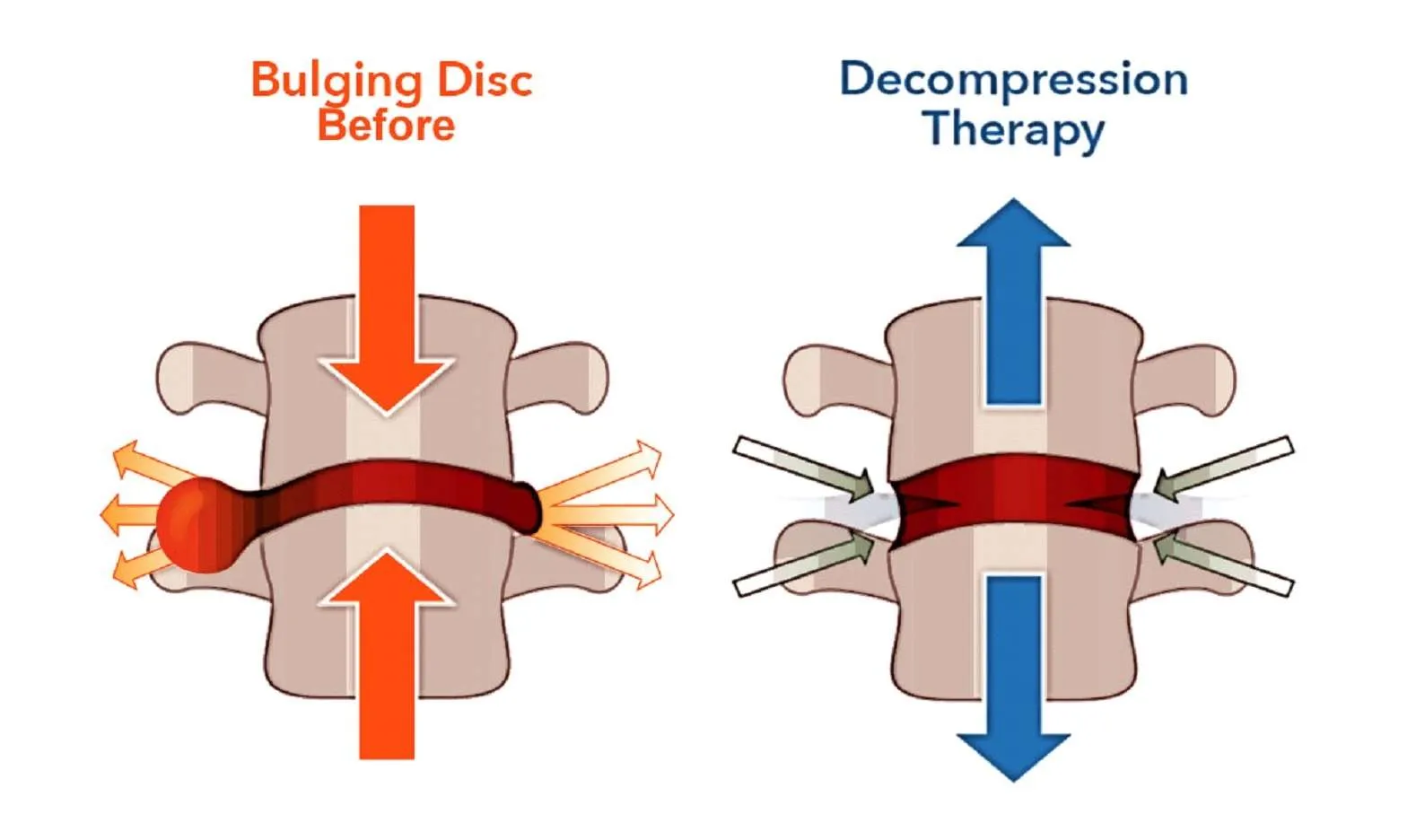How to Decompress the Spine: At-Home Tips & Professional Care in Boulder, CO
How to Decompress the Spine: At-Home Tips & Professional Care in Boulder, CO
If you’ve ever felt the relief of stretching out your back after sitting too long, you’ve already experienced the basics of spinal decompression. At Boulder Sports Clinic, we take spinal decompression to the next level with advanced therapy that relieves pain, restores mobility, and helps your spine heal naturally.
What Is Spinal Decompression?
Spinal decompression is a technique used to gently stretch the spine, creating negative pressure inside the discs. This reduces pressure on irritated nerves and promotes the flow of nutrients, oxygen, and fluids back into the spinal discs—allowing them to heal more effectively.
It’s especially helpful for people suffering from chronic back or neck pain related to disc and nerve problems.
Why Is Decompression Helpful?
- Relieves pressure on spinal discs and nerves
- Improves mobility and posture
- Reduces chronic muscle tightness and spasm caused by compressed nerves
- Promotes long-term healing by restoring disc hydration and spacing

Injuries That Respond Best to Spinal Decompression
Spinal decompression is commonly used to treat:
- Herniated or bulging discs
- Pinched nerves / sciatica
- Degenerative disc disease
- Spinal stenosis
- Chronic neck or lower back pain
For these conditions, decompression can often help patients avoid medications or even surgery.
How to Decompress Your Spine at Home
While home methods don’t provide the same precision as clinical decompression, they can offer short-term relief:
- Inversion Table: Using gravity to gently stretch the spine.
- Foam Rolling: Releasing tight muscles and improving posture.
- Gentle Yoga Poses: Poses like Child’s Pose or Cat-Cow help create space in the spine.
- Hanging from a Pull-Up Bar: Using your body weight to lengthen the spine.
These can help reduce tension but don’t allow for targeted decompression of specific spinal segments like our decompression table.
Why Our Decompression Table Is More Effective
At Boulder Sports Clinic, our non-surgical spinal decompression table uses computer-guided technology to precisely target the injured area. Unlike at-home methods, it:
- Focuses on specific levels of the spine
- Uses controlled cycles of gentle stretching and relaxation
- Is adjustable to your body size, comfort, and condition
- Provides measurable, progressive improvements
What to Expect During a Decompression Session
- You’ll be comfortably secured to the decompression table.
- The machine gently stretches and relaxes your spine in cycles.
- Sessions are pain-free, and many patients find them relaxing.
- A typical session lasts 20–30 minutes.
- Most patients begin noticing results within a few sessions.
Pairing Decompression with Other Services
To maximize healing, spinal decompression can be combined with other services at Boulder Sports Clinic, such as:
- Physical Therapy: Correcting muscle imbalances and strengthening the spine.
- Massage Therapy: Releasing tight muscles that pull on the spine.
- Shockwave Therapy: Stimulating healing in surrounding soft tissues.
- Laser Therapy: Reducing inflammation and accelerating cellular repair.
This integrated approach not only relieves pain but also helps prevent future flare-ups.
Find Relief at Boulder Sports Clinic
If you’re searching for ways to “decompress the spine” and want a safe, effective, and lasting solution, our non-surgical spinal decompression therapy is here to help.
👉 Schedule your appointment at Boulder Sports Clinic today and discover the difference targeted decompression can make for your back or neck pain.
Related Posts

Introducing Soft Tissue Ultrasound at Boulder Sports Clinic: Accurate Diagnosis for Faster Healing

What is Scar Tissue and How Do You Get Rid of it?

Protein Intake for Optimal Health, Recovery, and Longevity
Experience the difference at Boulder Sports Clinic.
Contact us today to schedule an appointment and start your journey towards optimal health and peak performance. Still have questions? Call us now at (303) 444-5105

